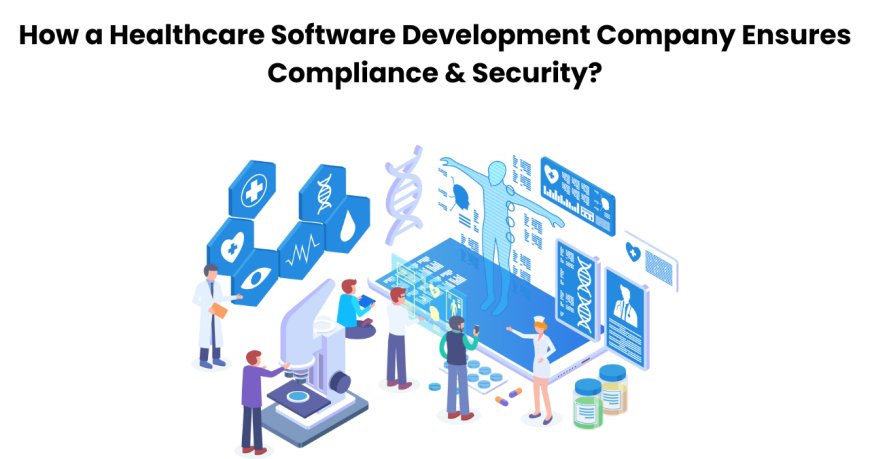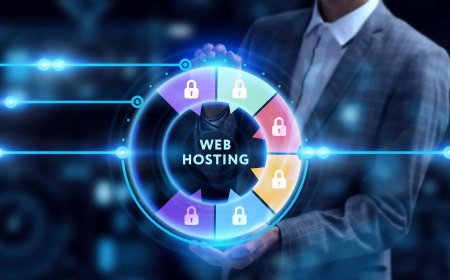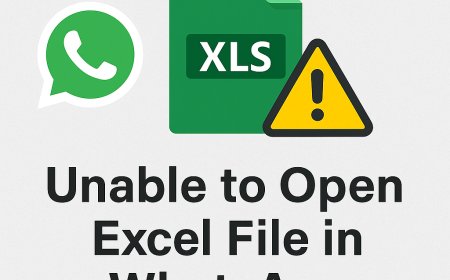How a Healthcare Software Development Company Ensures Compliance & Security?
Discover how a healthcare software development company ensures compliance and security with robust encryption, secure workflows, and regulatory adherence.

Introduction
In todays digital age, healthcare software is transforming the way patient care is delivered, medical records are handled, and health data is analyzed. As technology becomes more deeply embedded into hospitals, clinics, and telehealth services, one thing becomes critically importantsecurity and compliance. A healthcare software development company plays a crucial role in making sure these systems follow strict laws and keep patient information safe.
Whether its protecting electronic health records or ensuring the software meets national and international regulations, these companies must prioritize patient privacy and legal standards. Healthcare data is not like regular dataits deeply personal, often sensitive, and heavily regulated. A single breach or misstep can lead to serious legal consequences and damage to a healthcare providers reputation.
This blog will explore how a healthcare software development company ensures compliance and security at every step of the development process. We'll break down the strategies, tools, and best practices that are followed to keep healthcare software safe, legal, and trustworthy.
Why Compliance and Security Matter in Healthcare Software
The Sensitive Nature of Healthcare Data
Healthcare software stores and manages a wide range of informationpersonal identification, medical history, lab results, insurance details, and even mental health records. If this data falls into the wrong hands, it could lead to identity theft, insurance fraud, or a serious breach of privacy.
For this reason, governments and international bodies have created strict laws that dictate how this kind of data must be handled, stored, and shared. Failing to meet these requirements can lead to penalties and loss of trust among patients.
Legal and Regulatory Requirements
Countries have established regulations that healthcare software must comply with. For example, in the U.S., healthcare apps and platforms must follow HIPAA (Health Insurance Portability and Accountability Act). In Europe, the equivalent regulation is GDPR (General Data Protection Regulation). There are also other local regulations depending on the region and specific medical practices.
A healthcare software development company must fully understand these regulations and build software that not only performs well but also follows these legal rules closely. This is what ensures the software is compliant and safe to use in the healthcare environment.
How a Healthcare Software Development Company Ensures Compliance
Deep Understanding of Regulatory Standards
Before any software is built, the development company studies the laws and regulations relevant to the project. This includes HIPAA, GDPR, HL7, FHIR (Fast Healthcare Interoperability Resources), and more. The development team works closely with compliance experts, legal advisors, and sometimes even healthcare providers to create a list of requirements the software must meet.
This step helps set the foundation for secure architecture, proper access control, and clear user roles right from the beginning. It also ensures that the company stays legally protected and the product is approved for public or private healthcare use.
Implementing Role-Based Access Control (RBAC)
In healthcare software, not everyone should have access to everything. A nurse doesnt need to see financial records, and a receptionist doesnt need access to lab results. A healthcare software development company enforces Role-Based Access Control (RBAC) to ensure that users only have access to the parts of the system they are authorized to use.
By assigning specific roles to each user, the software reduces the chances of accidental data exposure and increases overall safety. RBAC is often combined with multi-factor authentication (MFA) for an extra layer of protection.
Secure Data Storage and Encryption
Data security starts with where and how the information is stored. Healthcare software uses secure cloud environments or encrypted servers that follow industry standards. All stored and transmitted data is encrypted using strong encryption methods, such as AES (Advanced Encryption Standard) or TLS (Transport Layer Security).
This means even if a hacker gets access to the data, they wont be able to read it without the proper decryption keys. End-to-end encryption is often used for communications between doctors and patients, especially in telemedicine apps.
Regular Security Audits and Risk Assessments
A responsible healthcare software development company doesnt just build the software and forget it. They conduct regular internal and external security audits to check for weaknesses or bugs. Penetration testing (ethical hacking) is also used to simulate real cyberattacks and test how well the software can resist them.
Risk assessments are performed to identify all possible security threats, such as phishing, ransomware, or insider attacks. Based on these results, the software is updated and improved to maintain a high level of security over time.
Logging and Monitoring of All Activities
To maintain transparency and traceability, healthcare software includes logs that track all activitieswho accessed what data, at what time, and from which device. These audit trails are crucial for detecting suspicious behavior and can be used as evidence in case of a data breach.
Continuous monitoring systems run in the background to alert administrators in real time if something unusual happens. This proactive approach prevents minor issues from becoming major problems.
Best Practices in Building Secure Healthcare Software
Using Secure Coding Standards
From the first line of code, a healthcare software development company follows secure coding practices. Developers avoid known vulnerabilities such as SQL injection, cross-site scripting (XSS), and buffer overflows. These are common weak points that hackers look for in poorly built software.
The software is also regularly tested during development through code reviews and automated security scans. This ensures any issues are caught early before they affect the final product.
Ensuring Interoperability with Secure APIs
Healthcare software often needs to connect with other systems, such as labs, pharmacies, or insurance providers. To do this securely, developers use secure APIs (Application Programming Interfaces). These APIs are protected with tokens, encryption, and limited permissions to make sure data is shared safely between systems.
Interoperability is important for creating a seamless experience for users, but it must be done with caution to avoid opening security holes.
Providing User Training and Documentation
Even the most secure software can be misused if users dont know how to handle it properly. Healthcare software companies often provide training materials, guides, and documentation to help medical staff use the system correctly and securely.
Staff are taught how to avoid phishing attacks, how to recognize security warnings, and how to report suspicious activity. Educated users are often the first line of defense against cyber threats.
Read more: Why Healthcare Software Development Is Revolutionizing Patient Care?
How Compliance and Security Improve Patient Trust
Building Confidence with Patients
When patients know their data is secure and handled properly, they are more likely to engage with digital healthcare services. Trust plays a huge role in the adoption of healthcare apps, telemedicine, and patient portals.
A compliant and secure software system shows patients that the healthcare provider values their privacy and is committed to high standards. This trust encourages patients to be more open, which in turn improves diagnosis and treatment outcomes.
Reducing Legal and Financial Risks
Data breaches can cost a lotnot just in money, but in lost reputation. By working with a healthcare software development company that prioritizes compliance and security, healthcare providers reduce their risk of facing lawsuits, fines, or service shutdowns.
This also makes it easier to get certifications, insurance approvals, and partnerships with other healthcare organizations.
Supporting Long-Term Growth
Compliance isnt just about checking boxesits about creating a solid foundation for growth. When security is built into the core of the software, it becomes easier to scale, update, and expand the system without putting patient data at risk.
Whether a healthcare provider is adding new services, expanding into new regions, or switching to new technologies, having a secure system in place supports that journey.
Conclusion
In the world of healthcare, security and compliance are not optionalthey are essential. A healthcare software development company plays a vital role in creating digital solutions that protect patient information, meet legal standards, and earn the trust of both users and regulators. From secure coding and encrypted data storage to regulatory compliance and role-based access, every detail is carefully managed to ensure that the software is safe and reliable.
Healthcare providers who partner with the right development team can confidently embrace digital transformation without worrying about security risks or legal pitfalls. With smart planning, advanced tools, and a focus on patient safety, these companies are helping shape the future of digital healthcare.
If youre considering building a custom healthcare solution, working with an experienced app development company will give you a strong head start. With their help, you can create secure, compliant, and user-friendly software that supports better care and builds long-term trust.
FAQs
What regulations does healthcare software need to follow?
Healthcare software must comply with laws like HIPAA in the U.S., GDPR in Europe, and other local health data regulations depending on the country of operation.
How do healthcare apps protect patient information?
They use security features like encryption, access controls, secure cloud storage, and regular audits to prevent unauthorized access or data leaks.
What is role-based access control in healthcare software?
Role-based access control means each user only has access to the data they need based on their rolesuch as doctor, nurse, or adminkeeping patient information safe.
How often should security checks be done on healthcare software?
Security audits and risk assessments should be conducted regularlyat least yearly or after major updatesto ensure ongoing protection.
Can small healthcare providers also afford secure software solutions?
Yes, many software development companies offer scalable and cost-effective solutions tailored to the needs and size of smaller healthcare practices.




































